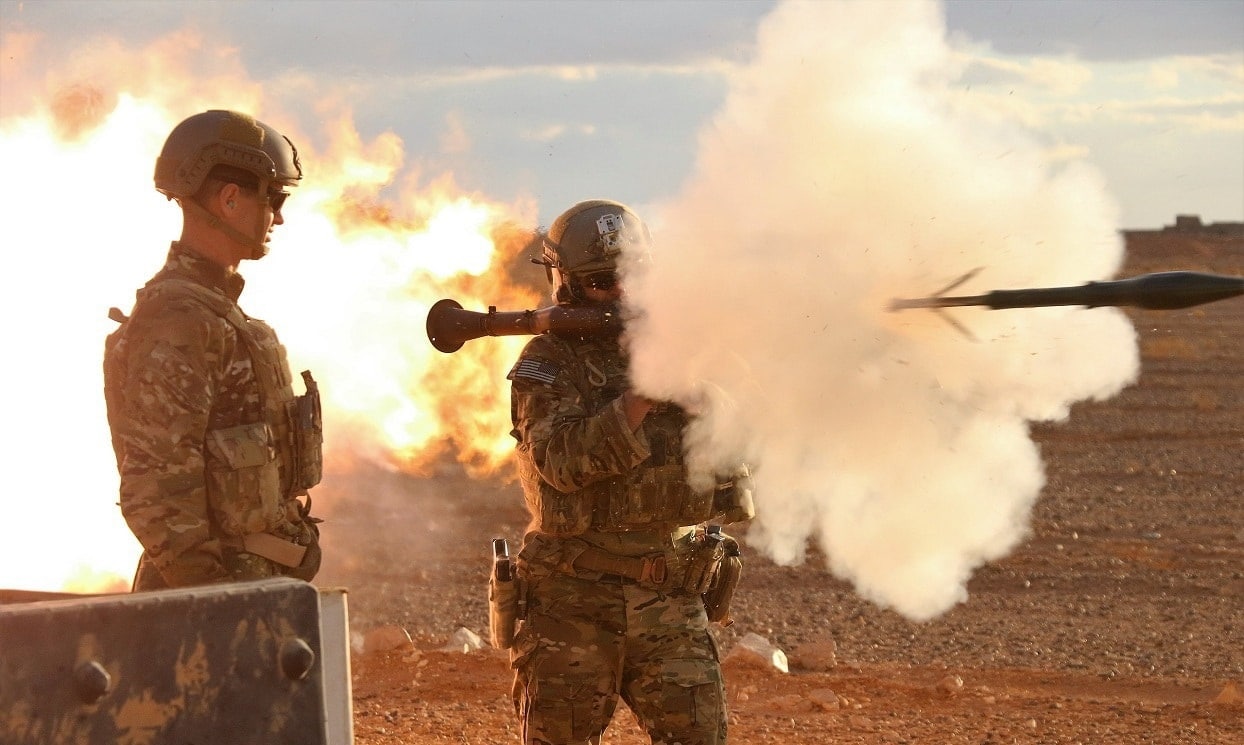An almost unprecedented, for modern times, wave of violence and unrest is overtaking China.
Thousands of people have taken to the streets to protest against the oppressive COVID-19 policies of the Chinese Communist Party and President Xi Jinping.
Not since the Tiananmen Square massacre of 1989, when the Chinese military opened fired and killed thousands of people in Beijing, has the Chinese government had to deal with that level of unrest from its own citizens.
The riots and unrest are likely to push the Chinese government to take extreme measures in an attempt to divert attention from what is going on in the streets.
And there is no better target for the Chinese Communist Party than neighboring Taiwan.
Taiwan: The Diplomatic and Political Background
Ever since the nationalist forces retreated to Taiwan at the end of the Chinese Civil War in 1949, the two countries have been at odds.
Beijing has repeatedly stated its intention of unifying the two countries through diplomacy and talks, but also with force if necessary.
Right now, the U.S. has no legal obligation to assist Taiwan in the event of a war. However, the Biden administration—as well as previous administrations—have indicated that they would militarily support and even defend Taiwan in the event of a Chinese invasion.
U.S. President Joe Biden himself has stated on four separate occasions that the U.S. would militarily aid Taipei against a Chinese attack.
However, his comments were later slightly modified by U.S. defense and diplomatic officials.
The U.S. tries to keep the communication lines with China open. Over the past few weeks, there have been three senior meetings between American and Chinese officials. Biden and Vice President Kamala Harris met with Xi Jinping during the G-20 meeting in Indonesia in early November, while U.S. Defense Secretary Lloyd Austin met with Chinese Defense Minister Wei Fenghe (the second in-person meeting between the two men in six months) during the Association of Southeast Asian Nations (ASEAN) defense minister conference in mid-November.
Austin and Fenghe talked for about an hour and a half, focusing on the need for the U.S.-Chinese competition to remain peaceful and avoid a conflict. The two men also discussed the resumption of high-level defense dialogues between the two countries that have been put on hold since the visit of U.S. Speaker of the House Nancy Pelosi to Taiwan in August.
During and following Pelosi’s visit, the Chinese military launched an aggressive show of force against the island nations with hundreds of fighter and bomber jet sorties and naval exercises right next to Taiwan. Beijing also launched ballistic missiles over the island nation.
At the time, National Security Council spokesperson John Kirby said that the U.S. does not seek a crisis and is willing to de-escalate if China chooses to do so. The senior U.S. official, however, stressed that the U.S. isn’t prepared to “engage in saber-rattling” and will continue to operate in the seas and skies of the Indo-Pacific theater.
“We will continue to support Taiwan, defend a free and open Indo-Pacific, and seek to maintain communication with Beijing. We’ll keep doing what we are doing, which is supporting cross-Strait peace and stability,” Kirby added.
Arming Taiwan Against a Chinese Invasion
The easiest way for the U.S. to increase the deterrence capabilities of Taiwan and make it harder for the Chinese military to invade the small island nation is to sell advanced weapon systems to Taipei.
However, the war in Ukraine caught off guard the U.S. military and the American defense and aerospace industries and is delaying weapon shipments to Taiwan. The White House has prioritized military aid to Ukraine at the cost of weapon shipments to Taiwan.
Since the Russian invasion started on February 24, the U.S. has sent or committed to sending Ukraine close to $20 billion in arms. On the other hand, Taiwan is still waiting to receive almost $19 billion worth of weapon systems, including FGM-148 Javelin anti-tank weapons and FIM-92 Stinger anti-aircraft missiles.
In the case of some weapon systems, Taiwan made the orders almost seven years ago.
The Taiwanese deputy defense minister for armaments, General Wang Shin-lung, said last month that his country would like to see the weapon systems it has ordered “be delivered as scheduled,” subtly hinting at Taipei’s displeasure with the situation.
Since 2009, the Taiwanese military has ordered almost $30 billion worth of weapon systems from the U.S.
In the event of a conflict with China, the waters around Taiwan are likely to be contested, hindering the delivery of security aid.
With current U.S. intelligence assessments suggesting that Beijing might seek to invade its neighbor within the next few years, arming Taiwan for self-defense while it is still possible is key.
Expert Biography: A 19FortyFive Defense and National Security Columnist, Stavros Atlamazoglou is a seasoned defense journalist specializing in special operations, a Hellenic Army veteran (national service with the 575th Marine Battalion and Army HQ), and a Johns Hopkins University graduate. His work has been featured in Business Insider, Sandboxx, and SOFREP.

